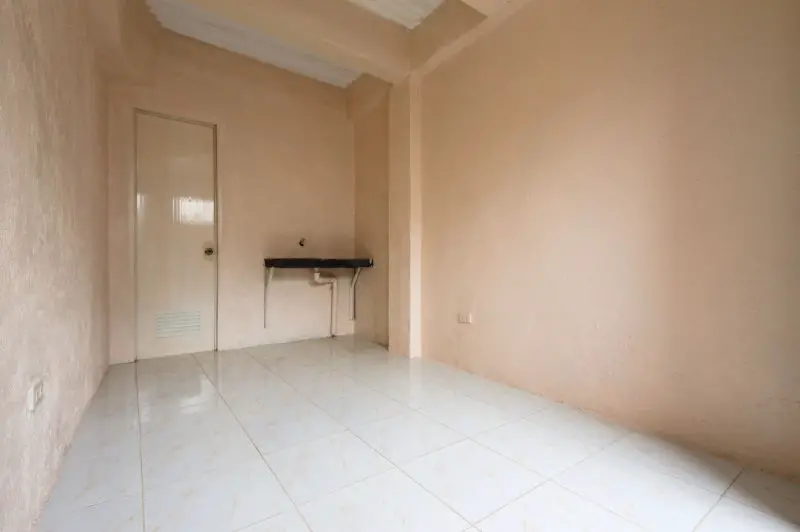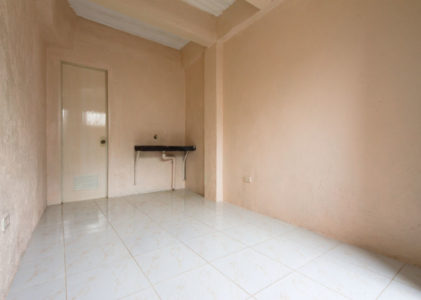Shiny object syndrome — I was especially guilty of this. It’s when we chase the most trendy thing. For me, it was going after the latest best real estate strategy. We would try flipping and renting; on- and off-market listings; residential and commercial; budget and premium. I didn’t know I needed to find my real estate niche.
But do you even need to find your real estate niche? I recommend you do to avoid the same mistakes I made and save yourself time.
Finding a real estate niche is crucial because this is the one thing millionaire real estate investors have in common — they have a defined niche that they’ve mastered first before expanding to adjacent or even dissimilar niches.
There’s diversity in the types of real estate millionaires, and there’s probably no unifying variable other than real estate. Others have found success in brokering deals while others in managing rental properties. But a vast majority have found a formula that works for them. Rather than pursuing all things real estate, they have a defined niche they stick with. Through repetition, they’ve mastered their niche.
Let’s talk about how you can find your real estate niche for massive growth.
Page Contents
What is a real estate niche?
What does niche mean in real estate? A market niche is basically a small segment of the broad market. Rather than being a generalist, it’s about being a specialist. The idea is about creating a focused business.
When you try to be everything to everyone, you accomplish being nothing to anyone.
Bonnie Gillespie
Finding a real estate market niche is applying this principle to real estate investing. It’s about choosing your location, type of property or sectors (e.g., apartments, retail, etc.), condition, budget, and having predefined criteria of what makes a good deal.
For example, my particular niche is the low-cost rental apartments in Puerto Princesa with a minimum cash-on-cash return of 12%. It is that specific. The riches are in the niches.

Do you need a real estate niche?
In the book The Millionaire Real Estate Investor, Gary Keller interviewed hundreds of real estate millionaires and found some common traits — including having a defined real estate niche.
These millionaires shared stories of how they wished they had stayed with what was working.
Often they got bored with what was working and began to prematurely explore other real estate investments. “Premature” is the operative word because you certainly will have to switch or pivot eventually. But for a vast majority of them, they wished they didn’t get sidetracked.
Works for real estate investors, real estate brokers, real estate agents
The lessons here appeal to all real estate players — investors, brokers, agents. When you’re, say, a real estate broker that’s known as the go-to person for premium commercial properties in Makati, then it’s easier to get the deal against a generalist.
Having a specialization has many benefits: Repetition means you become an expert who can go deeper than most. The community gets to know you as the expert and you build your brand. Your community is defined and targeted, making marketing a whole lot easier. You’re able to tailor your service specifically to your target market.
How to find your real estate niche
What is a good real estate niche? It’s the one that works for you. Now, that might seem like a cop-out answer until you realize how there isn’t one golden path to wealth. Multiple types of models work.
To find your real estate niche, you’ll need to answer these 5 questions:
- In what location do you want to invest?
- What sector, or type of property, do you prefer?
- What’s the condition of the property?
- In what price range do you plan on investing?
- Which metrics (or criteria) matter to you?
Let’s talk about these 5.

1. Location
This one’s pretty simple. Do you plan on investing locally or away from home? The advantage of investing locally is clear — you get some sense of security. You visit the property when you like.
But sometimes, investing in your local market may not make economic sense. For some people, say people living in highly urbanized areas, it just makes more sense to look for cheaper properties in fringe areas.
David Greene’s book on Long-Distance Real Estate Investing is a primer for anyone looking to invest outside of their local space.
2. Sector
Choosing a property type can be one of the more challenging factors to consider just because of the breadth of options.
Some of the more popular sectors include the following:
- Apartments – growth in line with inflation, making it a good inflation hedge (but low interest and new construction make it a renter’s market)
- Retail shopping – good growth (but beware of challenges from larger malls and e-commerce)
- Offices – good in expanding economies (bad in contracting economies)
- Industrial – similar to offices but less pronounced
- Hotels – similar to offices but more pronounced
- Others
The point is, there are pros and cons regardless of the sector you choose. The tradeoff between risk and return also holds true. For example, offices, industrial, and hotels are generally affected by similar macroeconomic variables, but the swings in one particular sector are more (or less) pronounced.
Related: The Risk and Return Trade-off Applied in Real Life (Uncommon Examples)
3. Condition
Are you looking for new properties; dilapidated and foreclosed properties; turnkey?
Some investors like the convenience of new properties while others get excited about turning around a deteriorating property. In general, the more work you put in, the greater the chance of earning more. There is once again the risk-return tradeoff.
4. Price range
What market segment do you wish to work with? Do you prefer the budget, mid, or premium markets?
Regardless of where you end up on the spectrum, you’re basically guaranteed to see all sorts of tenants and buyers.
5. Metric
And finally, you’ll have to define what a good deal is to you.
Some get overly passionate about which metrics work best — ROI, ROE, CoC, NPV, IRR, and more. And there are definitely pros and cons to all of these performance metrics. But for me, as long as you understand the strengths and weaknesses of your chosen metric, then you can choose what you’re comfortable with.
Consistency with your metrics and analyses usually turns out to be more important than the what.
Staying the course or pivot?
As long as a real estate niche is making you money, most millionaire real estate investors recommend milking it as long as possible; ride it for all it’s worth.
Eventually, you will run out of opportunities. That may be because economic conditions no longer make it appealing, or because you’ve simpled maxed out the available properties in the area.
When this happens, I recommend pivoting by changing one of the 5 variables I mentioned earlier: location, sector, condition, price range, or metric.
By changing one variable at a time, it’s easier to see if it was the right pivot or not. In due course, you’ll find your new real estate niche.
Conclusion
Mastering one particular niche has been found to work better than being a real estate generalist with interests across the board. The challenge is finding the right real estate niche for you. And that is something that’ll come in due time.
There will always be more opportunities than you can effectively pursue. And having a niche to master can be the nudge you need to maintain focus.
The biggest takeaway is knowing how having a real estate niche can do wonders for your real estate investing. It’s a model that has worked for a lot of real estate millionaires, and it’s hard to argue with that.
*This post may contain affiliate links. You can read my affiliate disclosure here, Terms & Conditions, #6 Links.








